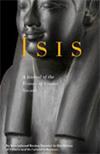History of Pandemics in Latin America
IF 0.9
2区 哲学
Q2 HISTORY & PHILOSOPHY OF SCIENCE
引用次数: 0
Abstract
This essay revisits the scholarly production around three major pandemics in the region: (a) the Third Plague Pandemic; (b) HIV/AIDS in the 1980s; and (c) COVID-19. The essay aims to provide a comprehensive set of resources (both printed and digital) in four languages (Portuguese, Spanish, English, and French) to examine how scholars have approached these phenomena and how their scope and interpretations have changed over time. Historians of health paid particular attention to sociocultural aspects of the disease, which enabled them to consider usually-neglected actors, such as patients of Indigenous and African descent with their own medical traditions. This added more complexity to our understanding of how these pandemics were fought and received. In addition, the essay suggests that COVID-19 prompted the emergence of historians of health as public scholars. They actively used social networks and other digital tools not only to communicate about the long history of diseases and pandemics in the region, but also to provide an authorized or informed perspective amid misinformation and fake news. In addition, the internet was crucial to the development of helpful databases and virtual conferences beyond academic campuses and paywalls.拉丁美洲流行病的历史
本文回顾了有关该地区三次主要流行病的学术成果:(a)第三次瘟疫大流行;(b) 1980年代的艾滋病毒/艾滋病;(c) COVID-19。本文旨在以四种语言(葡萄牙语、西班牙语、英语和法语)提供一套全面的资源(印刷和数字),以研究学者如何处理这些现象,以及它们的范围和解释如何随着时间的推移而变化。健康历史学家特别关注这种疾病的社会文化方面,这使他们能够考虑到通常被忽视的行为者,例如具有自己医疗传统的土著和非洲裔患者。这增加了我们对如何抗击和接受这些流行病的理解的复杂性。此外,文章还认为,新冠肺炎促使了作为公共学者的卫生历史学家的出现。他们积极利用社交网络和其他数字工具,不仅就该地区疾病和流行病的悠久历史进行交流,而且在错误信息和假新闻中提供经授权或知情的观点。此外,互联网对于在学术校园和付费墙之外开发有用的数据库和虚拟会议至关重要。
本文章由计算机程序翻译,如有差异,请以英文原文为准。
求助全文
约1分钟内获得全文
求助全文
来源期刊

Isis
管理科学-科学史与科学哲学
CiteScore
1.00
自引率
16.70%
发文量
150
审稿时长
>12 weeks
期刊介绍:
Since its inception in 1912, Isis has featured scholarly articles, research notes, and commentary on the history of science, medicine, and technology and their cultural influences. Review essays and book reviews on new contributions to the discipline are also included. An official publication of the History of Science Society, Isis is the oldest English-language journal in the field.
The Press, along with the journal’s editorial office in Starkville, MS, would like to acknowledge the following supporters: Mississippi State University, its College of Arts and Sciences and History Department, and the Consortium for the History of Science, Technology, and Medicine.
 求助内容:
求助内容: 应助结果提醒方式:
应助结果提醒方式:


